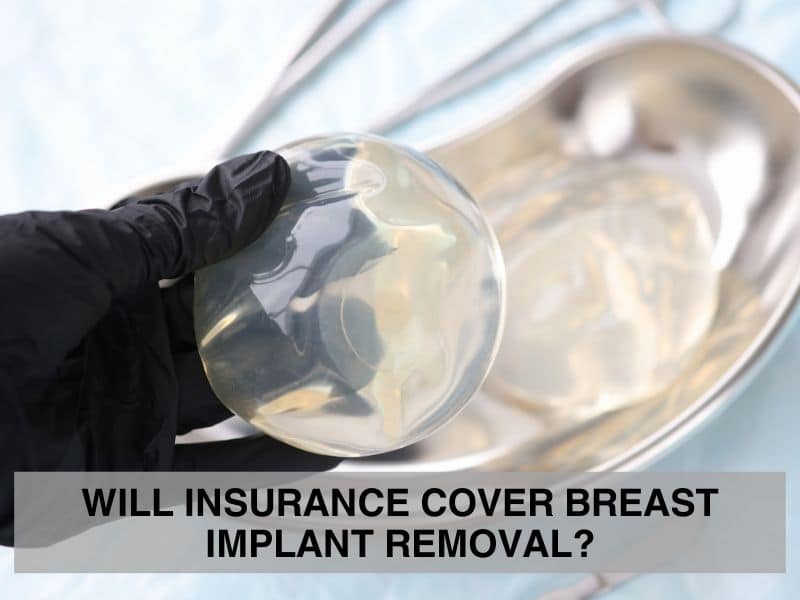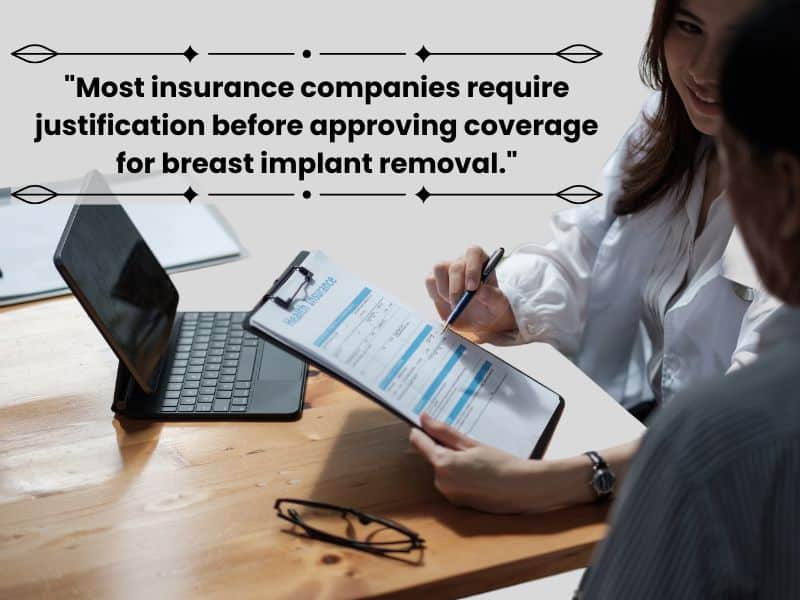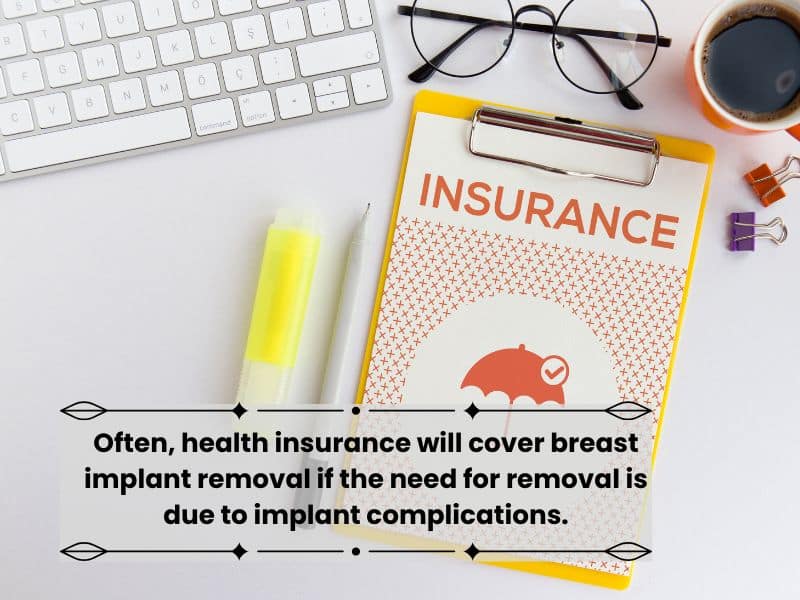
The short and rather inconvenient answer to the question, “Will insurance cover breast implant removal?” is: It depends.
There are some situations in which, yes, health insurance providers will deem a patient’s underlying symptoms “medically necessary”. And because of this, surgery to resolve the issue(s) will be covered, at least in part, if not in full.
However, health insurance never covers cosmetic surgery (surgery performed for cosmetic or aesthetic reasons only). So, if your need or desire for breast implant removal is related to a cosmetic concern, it is unlikely that you will receive coverage for the breast implant removal cost.
Naturally, there are all different types of health insurance companies and health insurance plans. Therefore, it’s always advised to talk directly with your provider for more details on coverage. In the following article, we will attempt to provide you with more information on general guidelines concerning this topic.
Will Medical Insurance Cover Breast Implant Removal?
Most insurance companies will need to learn more about why you need to have your breast implants removed before they clear you for coverage of breast implant removal. Typically across the board, the following reasons for breast implant revision (removal) may be considered for coverage:
- BIA-ALCL (Breast Implant-Associated Anaplastic Large Cell Lymphoma)
- Implant rupture (specifically for silicone implants)
- Chronic breast pain
- Infection that will not disappear
- Severe capsular contracture
Connective tissue and autoimmune disorders are rarely covered. If you’ve had a breast cancer diagnosis, you’ll need to discuss the details of how your breast implants should be removed with both your oncologist and your plastic surgeon before considering payment options.
Details for unique situations always depend on multiple factors, so you may not be able to find specific answers to your questions without speaking directly with your plastic surgeon and your insurance provider first.
Options After Breast Implant Removal
After explant surgery, it is common for the breasts to appear somewhat deflated, droopy, and flat without the implants inside to perk them up and project them out.
This is why many patients decide to have their breast implants replaced with new implants. Others simply want to leave their healthy breasts alone, ditching the implants and any other type of cosmetic procedure.
Still, others decide to undergo a breast lift after having their breast implants medically removed. Your decision should be based on your health and reasons for surgery, the desired image you have of your breasts, and potentially, insurance coverage.
FAQ: Breast Implant Removal Surgery
Will insurance cover breast implant removal for capsular contracture?
Not uncommonly, health insurance will cover breast implant removal if the need for removal is due to implant complications. Severe capsular contracture usually falls under this category, so yes, if your capsular contracture is significant enough, your insurance company may cover a breast implant removal procedure.
Note that capsular contracture is the development of hardened scar tissue around breast implants. Your body will naturally form such a capsule after breast implant surgery (breast augmentation).
But sometimes, the capsule can become too large, exceptionally hard, and uncomfortable. It may even be noticeable through the skin. In this case, surgery is needed to remove the scar tissue and, usually, the implant itself.
What will my breasts look like after breast implant removal?
Many patients are concerned their breasts will look flat after breast implant removal. And yes, it is possible they will look flatter.
Of course, during your breast implant removal recovery, you will be mostly covered with bandages, and swelling and bruising may also obscure your results. As you heal, however, if you did not have additional procedures performed (new breast implants inserted or a breast lift, etc.), you will likely notice a significant loss of volume and perhaps more drooping due to the permanently stretched skin.
What makes breast implant removal medically necessary?
Whether a procedure is medically necessary or not really has most to do with your insurance company’s definition of this term. Gallbladder removal for painful gallstones, for example, is medically necessary. Even a rhinoplasty for breathing difficulties is medically necessary. However, breast augmentation is not medically necessary, and neither is a Brazilian butt lift (BBL).
What will the side effects of breast implant removal be?
Once saline or silicone breast implants are removed, you’ll naturally have smaller breasts, so a significant change in breast shape and size is, of course, one of the main side effects of this procedure. Other after-breast implant removal side effects include light discomfort and pain, changes in sensation and numbness, tingling, bruising, and swelling.
Will breast implant removal surgery be covered for BII (breast implant illness)?
Again, this depends on your symptoms, whether you’ve received a firm diagnosis of this illness, and other factors. Talk to your surgeon and your health insurance company directly for more information.
Request Your Consultation for Breast Implant Removal
Board-certified plastic surgeon Dr. Raja Mohan specializes in breast enhancement surgery, including breast implant removal, breast augmentation (breast implant surgery), breast lift surgery, breast reduction, and other body contouring procedures.
If you are interested in learning more about breast implant removal, please contact our practice to book a consultation with Dr. Mohan today.

